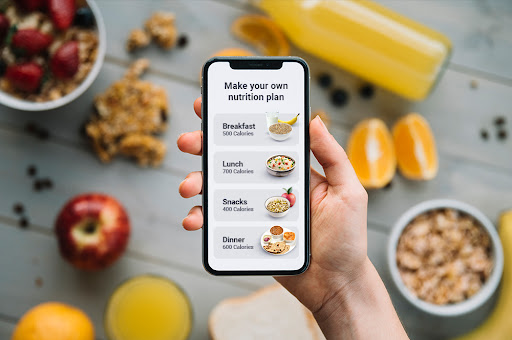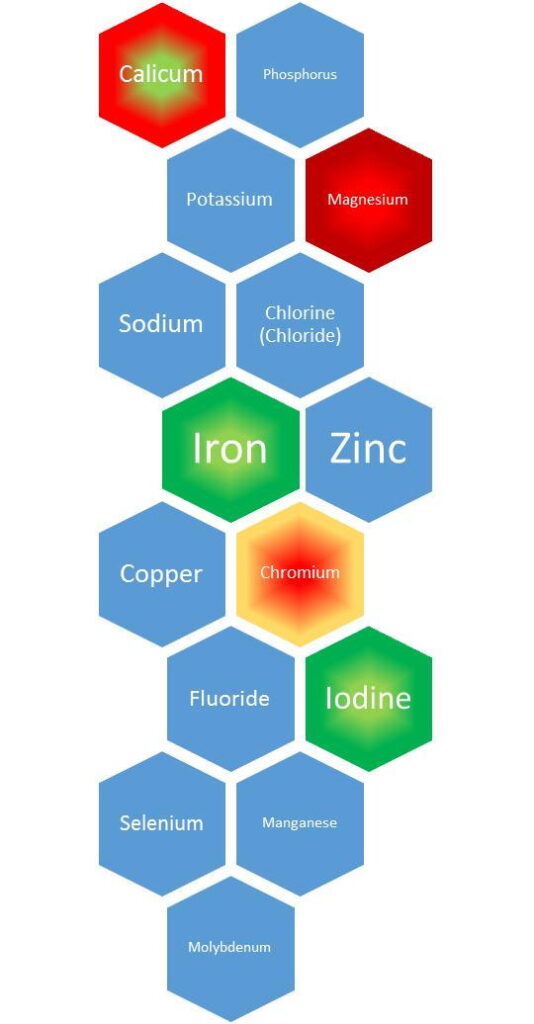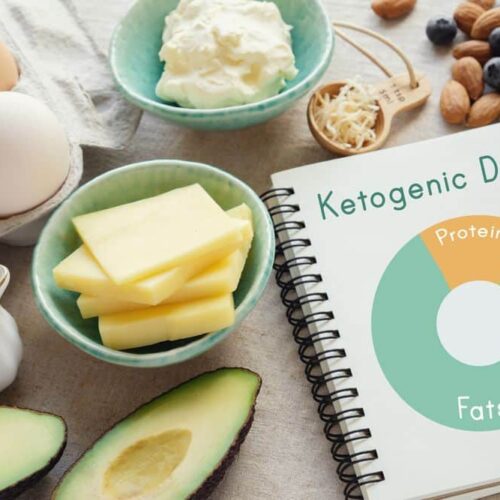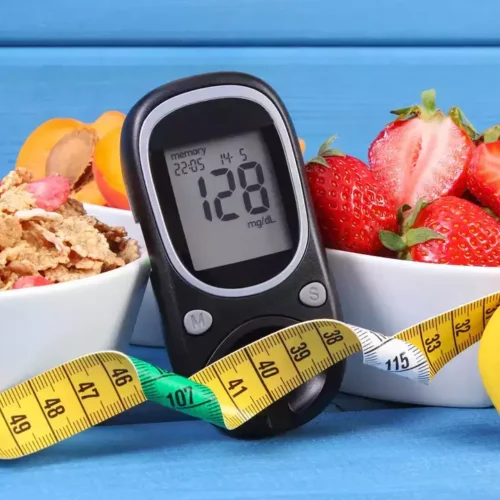Precautions of Diets for Weight Loss
Most weight loss diets are, effectively, just a healthier or lower-calorie way of eating, which makes them generally safe for many people. However, extreme weight loss diets intended to promote rapid weight loss come with added health risks.
People who should avoid weight loss diets include, but aren’t limited to:
Individuals whose physician advises against losing weight
Individuals with a history of eating disorders (e.g. anorexia nervosa, bulimia nervosa)
Individuals with medical conditions that require specific nutrient intake or restrictionIf you’re unsure if a weight loss diet is appropriate for you, talk with your doctor or a registered dietitian.
How to Choose the Best Diet for Weight Loss for You
Choosing the best weight loss diet for you requires finding one that gels with your lifestyle and accommodates your personality. It also helps if it aligns with your food preferences. Consider your health status and budget, as well.
Lifestyle and Personality. Do you like to cook, or do you prefer pre-made meals? Do you achieve goals better when there are strict rules to follow versus flexibility? Consider these questions when choosing your next diet plan to increase your chance of following through.
Food Preferences. You are more likely to stick to your diet plan if it incorporates and encourages foods that you like. If you’re a picky eater, choose a flexible eating plan to increase your likelihood of adherence and success.
Health Status. Some weight loss diets are unsuitable for people with certain medical conditions. At the same time, some weight loss diets are particularly beneficial to people with certain health conditions. Talk with your doctor for guidance on choosing the best diet plan for your overall health.
Budget. The best weight loss diet to reach your weight goal is one you can adhere to without breaking the bank. Though expensive weight loss programs like Jenny Craig can be effective, they aren’t your only option; it’s best to choose a program you can comfortably afford. Ultimately, you have to set realistic expectations based on everything you know about yourself. What motivates you? Are you organized enough to keep a daily food log? How much spare time can you dedicate to your weight loss goals? Are you willing to count calories every meal? How well can you control your food cravings?
By answering these questions, you’ll be in a better position to narrow down your diet plan choices. The more honest you are with yourself, the better your chances of finding an effective weight loss plan that delivers the results you want.
For best results, consult your healthcare provider or a registered dietitian about your weight loss goals for additional guidance on choosing the best weight loss diet for your overall health.
Keto Diet
What is the keto diet?
The keto diet, short for ketogenic diet, is characterized by an extreme reduction in carbohydrate intake (less than 50 grams per day) and a relative increase in the proportions of fat and protein. With a carbohydrate intake below 50 grams/day, nutritional ketosis can occur, which is a metabolic state where your body burns fat for energy instead of glucose.
Though originally created to treat epilepsy, the keto diet has proven to be effective for losing weight and decreasing body fat. In fact, a 2013 meta-analysis published in The Journal of British Nutrition found that compared to conventional low-fat diets, the keto diet helped participants achieve more sustainable weight loss.
The keto diet is one of the best diets for weight loss because it improves metabolic parameters associated with improvements in long-term weight management, which means that people who lose weight on a keto diet are better equipped to keep the weight off. A 2020 meta-analysis of randomized controlled trials (RCTs) published in Nutrients found that the keto diet is particularly effective in improving metabolic parameters related to glycemic control, weight management and lipid control in obese individuals, especially those with preexisting diabetes.
But despite its many potential health benefits, the keto diet is not without flaws. In the short term, strict adherence to the keto diet can lead to “keto flu,” which includes symptoms such as nausea, vomiting, headache, fatigue, dizziness, insomnia, reduced exercise tolerance and constipation. Furthermore, the long-term health implications of following the keto diet are not well known. Additionally, the keto diet is potentially inadvisable for pregnant women, older adults with frailty and individuals with certain health conditions, including Type 1 diabetes mellitus, kidney failure and cardiac arrhythmia.
Key foods
On a keto diet, you can technically eat whatever you want as long as your daily carbohydrate intake does not exceed 50 grams. The standard keto diet consists of high-fat consumption (70 to 80 percent of your caloric intake), moderate protein consumption (10 to 20 percent) and low carbohydrate intake (5 to 10 percent).
Food limitations
The keto diet limits carbohydrate consumption to 50 grams per day.
How the Keto diet works for weight loss
The keto diet promotes weight loss by causing ketosis, decreasing appetite and increasing lipolysis (fat breakdown), resulting in greater metabolic efficiency and fat burn.
Who is it best for?
Because it is inadvisable to adhere to the keto diet for longer than 12 months, the keto diet is best for people interested in a short-term diet rather than a lasting change to their way of eating.
Intermittent Fasting
What is intermittent fasting?
Intermittent fasting is characterized by time-restricted eating. Instead of restricting foods, it focuses on optimal fasting periods and eating windows.
A 2019 systematic review published in Journal of Clinical Medicine found that intermittent fasting is an effective method of weight loss and may provide a significant metabolic benefit by improving glycemic control, insulin resistance and adipokine concentration with a reduction of body mass index (BMI). Additionally, a 2022 review published in Endocrine Reviews observed that intermittent fasting may also be helpful for the prevention and management of chronic diseases, such as Type 2 diabetes and heart disease.
Though potentially beneficial to both weight loss and overall health, intermittent fasting may not be the best weight loss plan for people with unpredictable work and personal schedules since it requires adherence to a strict fasting schedule. Additionally, children under the age of 18, pregnant or breastfeeding women and individuals with Type 1 diabetes who take insulin are advised against trying intermittent fasting.
Key foods
There are no specific foods associated with intermittent fasting.
Food limitations
No food is off-limits. For best results, consume various nutritious foods to support a well-balanced dietary profile.
How intermittent fasting works for weight loss
Intermittent fasting works via what some experts refer to as “metabolic switching”—after hours without food, the body depletes its glucose stores and starts burning fat instead.
Who is it best for?
Individuals with flexible work and personal schedules may find success with an intermittent fasting diet. We recommend using an intermittent fasting app to help keep track of your eating and fasting windows.
WW (formerly Weight Watchers)
What is WW?
Formerly known as WeightWatchers, WW is ideal for people who struggle with food cravings and portion control. WW assigns a PersonalPoints™ Budget to members based on their lifestyle and food preferences. It allows you to eat whatever you want as long as you don’t go over your allotted points.
Keeping up with your food points is easy using the WW app. Simply scan a food item’s barcode while you shop to see its point value. In addition, the weight loss app provides 12,000 recipes, weekly 30-minute group workshops and on-demand workout videos for all levels.
While studies have found WW to be an effective weight loss program, it is worth noting that it comes with certain risks. For example, the food points system has the potential to make dieters unhealthily obsessed with staying within their points budget. Additionally, some participants find the weekly weigh-ins to be a cause of mental stress or anxiety.
We tried WW and wrote and in-depth review of this weight loss program if you want to learn more.
Key foods
WW plans generally favor food that may help control Type 2 diabetes, fight inflammation and lower heart disease risk.
Food limitations
WW discourages foods that can worsen inflammation and heart health, such as fried foods, foods high in added sugar and refined grains like white flour.
How WW works for weight loss
WW assigns a PersonalPoints™ Budget to members based on their lifestyle and food preferences. It requires members to log what they eat and keep track of their food points throughout the day. The program is designed to help you eat fewer calories without limiting your food options.
Who is it best for?
WW is an excellent diet for people who value community support. Membership grants you access to an exclusive digital community you can lean on for tips, motivation and emotional support. You can also elect to have a personal coach and receive one-on-one coaching sessions.
GOLO Diet
What is the GOLO diet?
The GOLO diet is less of a weight loss program and more of a dietary supplement regimen. It essentially calls for participants to eat balanced meals while using a supplement called “Release,” which is taken three times a day with every meal.
The Release supplement contains magnesium, zinc and chromium, plus a blend of herbal extracts and beneficial substances, including inositol, berberine extract, rhodiola extract and banaba extract. According to the brand, Release helps you achieve weight loss by supporting healthy blood glucose metabolism, controlling sugar cravings, balancing and stabilizing the key hormones that affect weight, increasing energy and stamina and reducing stress and anxiety.
To date, no clinical trials have investigated the efficacy of the GOLO Release supplement, so it’s impossible to know if it really works as intended or whether or not it’s safe to use. Some experts caution against the GOLO diet, citing the requirement to purchase and use a dietary supplement as a red flag. Additionally, multiple nutritionists have admonished the GOLO diet for lacking transparency around what the diet actually involves food-wise.
Key foods
According to the brand, the GOLO For Life Plan encourages foods like healthy fats and carbohydrates that balance hormone levels and support metabolic health.
Food limitations
There are no cited food limitations for the GOLO diet.
How the GOLO diet works for weight loss
According to its creators, the GOLO diet helps you achieve a healthy metabolism and a balanced hormone profile, resulting in sustainable fat loss and the preservation of lean muscle mass; however, there’s no non-company-backed, peer-reviewed research to support these claims.
Who is it best for?
If you don’t mind taking a dietary supplement thrice daily, the GOLO diet may be an option for you.
Read our GOLO Diet review for more information on this weight loss method.
Dukan Diet
What is the Dukan diet?
Created in the 1970’s by French doctor Pierre Dukan, the Dukan diet is a macronutrient composition-based diet characterized by a low carbohydrate content and a high protein intake. It claims to help dieters lose weight fast without being hungry.
However, some nutrition professionals criticize the Dukan diet for being complicated, eliminating lots of healthy foods and posing a health risk due to its high protein content. Some experts even consider the Dukan diet to be a fad diet.
The Dukan eating plan is divided into four phases: the attack phase, the cruise phase, the consolidation phase and the stabilization phase. A detailed description of each phase can be found in the Dukan Diet book.
Key foods
The Dukan diet includes every type of lean meat, including beef, pork, lamb, lean cuts of red meat, chicken, fish and shellfish. It also encourages plant-based proteins, such as soy, tofu, tempeh and seitan. Fat-free dairy products like cottage cheese, milk, cream cheese, Greek yogurt, sour cream and ricotta are also recommended.
Food limitations
Oddly enough, the Dukan diet discourages the consumption of fruits and vegetables. It also strictly limits carbohydrates and grains (other than oat bran), sugars, fats and alcohol.
How the Dukan diet works for weight loss
As a carbohydrate-restricted diet, the Dukan diet has the potential to spur nutritional ketosis, a metabolic state in which the body uses fat, rather than glucose, as its primary source of energy.
Who is it best for?
Individuals interested in trying an unconventional diet plan with strict rules may find the Dukan diet to be a worthwhile expedition.



















